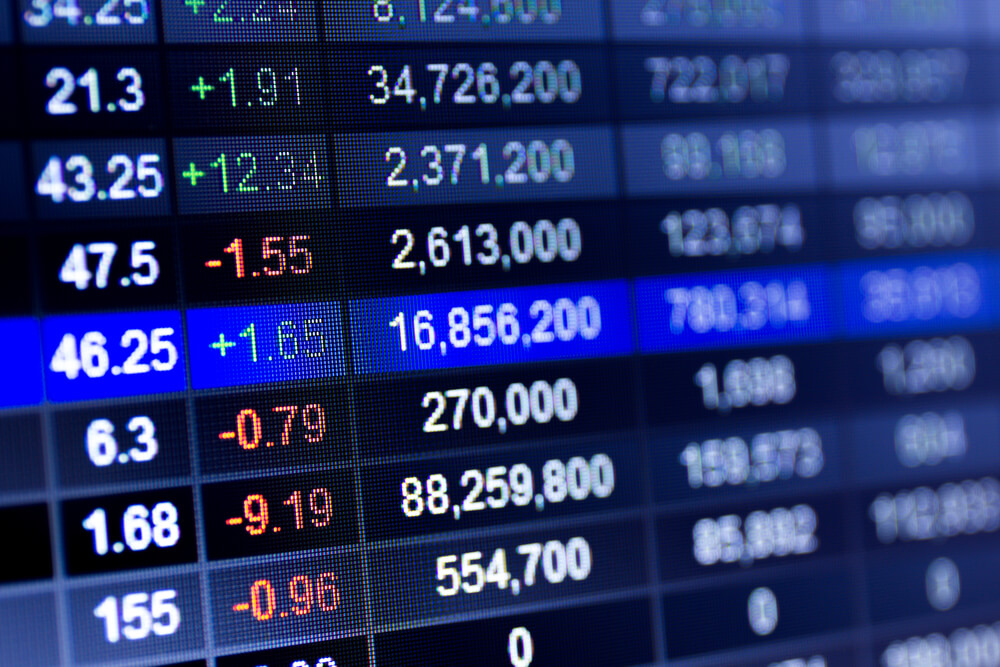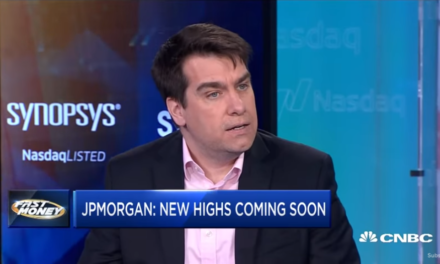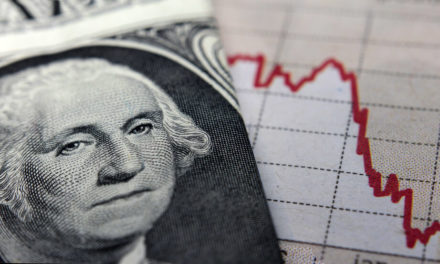Stocks turned broadly lower on Wall Street Tuesday as investors shifted money into bonds, sending yields to their lowest level in nearly two years and more in Tuesday’s Stock Market Update.
Surging demand for government bonds dragged the yield on the 10 year Treasury to 2.26%, its lowest level since September 2017. Rising bond prices are normally a sign that traders feel jittery about long-term growth prospects and would rather put their money into safer holdings.
Investors have been weighing a mix of encouraging and discouraging economic reports this year as they also keep an eye on unpredictable swings in the escalating trade war between the U.S. and China.
“If the bond market was saying that the economy is on OK footing then you wouldn’t see yields fall like they are,” said Willie Delwiche, investment strategist at Baird. “In many respects, equities are waking up to what’s happening in bonds.”
In a client note Tuesday, Morgan Stanley warned that the stock market faces a lot more volatility because of weak economic data and the trade war. It also cautioned that those factors are also increasing the risk that the U.S. economy could slide into a recession.
The slump in bond yields held back gains for banks and other financial companies. Falling yields lead to lower interest rates on loans, which makes lending less profitable. Goldman Sachs Group slid 1.8%.
Health care, consumer staples and financial stocks took some of the heaviest losses, offsetting gains in communications companies. Mylan skidded 5.6% and Kraft Heinz dropped 6.5%. DISH Network climbed 2.7%.
Payment processing and related companies gained ground after Global Payments said it would buy Total System Services for $21.5 billion. PayPal rose 1.7%.
The sell-off reversed Tuesday’s early gains and put the market on track to extend last week’s losses. The S&P 500 has fallen three weeks in a row. U.S. markets were closed Monday for the Memorial Day holiday.
Trading has been choppy over the last several weeks as investors grapple with the possibility of a prolonged trade war between the U.S. and China. The nations escalated the dispute earlier this month by raising tariffs on each other.
The U.S. went even further and proposed a ban on technology sales to certain Chinese companies. That has added even more volatility to technology stocks that are already sensitive to the ups and downs of trade negotiations.
The escalating trade dispute between Washington and Beijing this month has interrupted a market rally that saw the S&P 500 recoup the fourth quarter’s sharp loss and hit a new high. The index is down 4.5% so far in May, though it’s still up 12.3% for the year.
Tuesday started off mostly quiet for individual stocks with corporate earnings reports all but completed for the broad S&P 500 index. SeaWorld surged 16.5% after it announced a stock buyback and increased investment from a hedge fund.
STOCK MARKET UPDATE
KEEPING SCORE: The S&P 500 lost 23 points, or 0.8%, to 2,802. The Dow Jones Industrial Average fell 237 points, or 0.9%, to 25,347. The Dow had risen as much as 131 points earlier. The Nasdaq fell 29 points, or 0.4%, to 7,607. The Russell 2000 index of smaller companies gave up 0.8%.
Major stock indexes in Europe declined.
MARKET JITTERS: Equities have been gaining ground all year as U.S. data shows solid job growth. But investors are still concerned that economic growth could slow globally. That’s spurred the shift of money into bonds, sending yields steadily lower.
The drop in yields accelerated last week, but it has been happening gradually since late last year, when the 10 year Treasury yield peaked at 3.2%.
“This isn’t just about the U.S. and China,” said Brian Nick, chief investment strategist at Nuveen. “It’s about everybody sensing there is something to brace for.”
PROCESSING GAINS: Total System Services climbed 4.7% following the announcement that the payments processor is being bought by Global Payments.
The stock deal is valued at $21.5 billion and it is the third major acquisition in the payment technology sector this year.
Traditional payment processors like Global Payments are consolidating as they compete with upstarts like PayPal and Square, which is led by Twitter co-founder Jack Dorsey. Global Payments shares lost 2.9%.
SLIPPERY SECURITY: First American Financial fell 6.2% because of a security lapse that exposed bank account numbers and other sensitive information.
The real estate title company confirmed the lapse on Friday.
A flaw in an internet application allowed anyone with a web browser to see the confidential data in 885 million files. If the 885 million records were harvested, it would rank among the biggest leaks of data on the internet.
© The Associated Press. All rights reserved.




